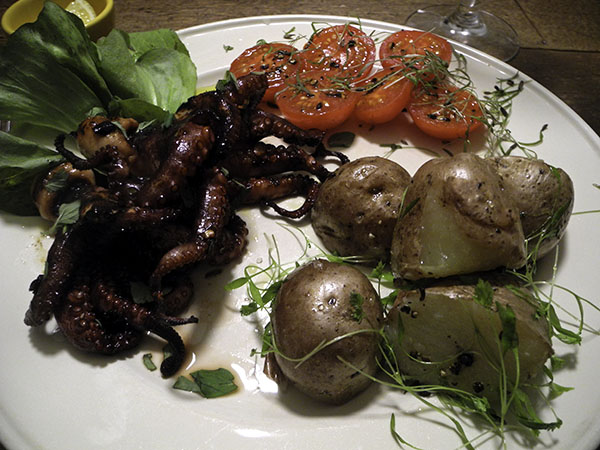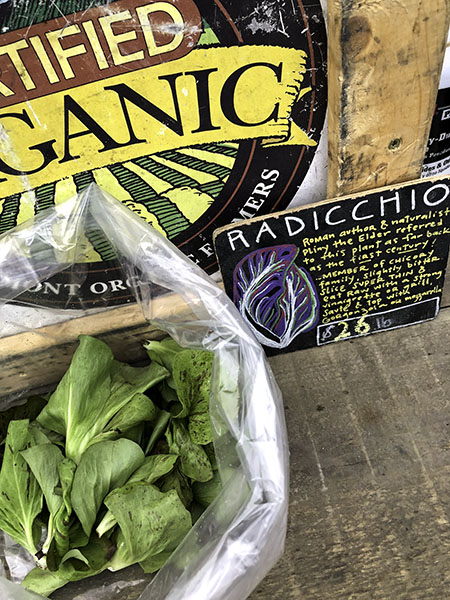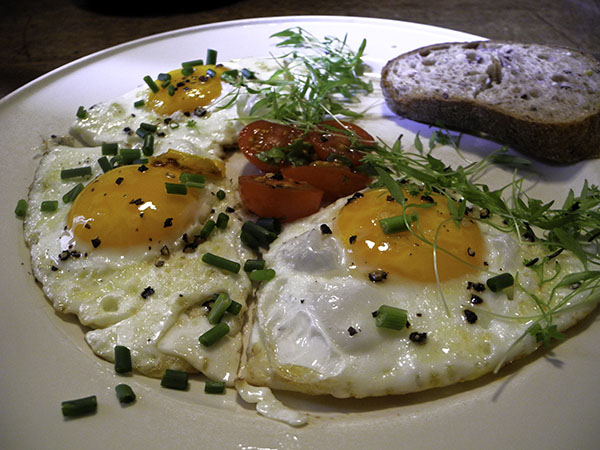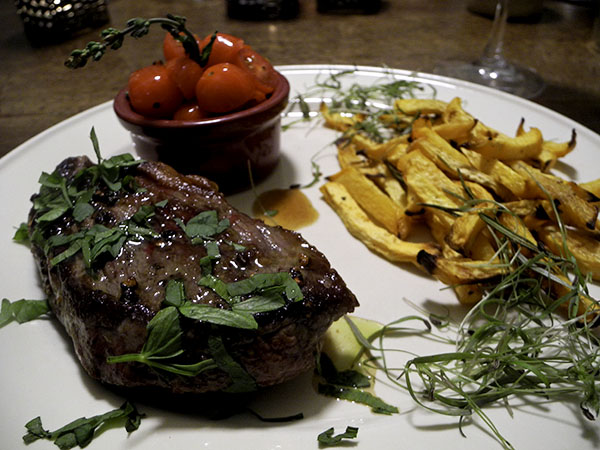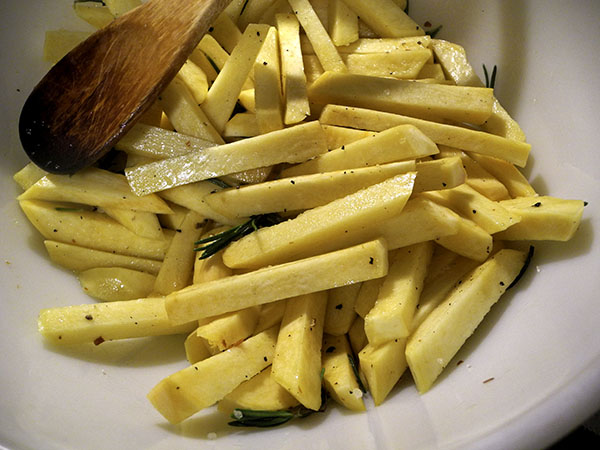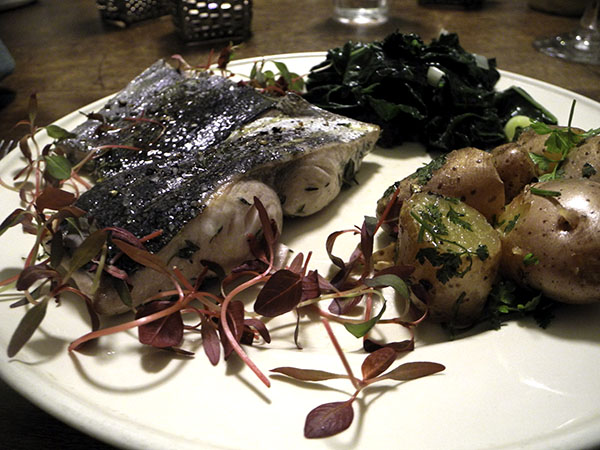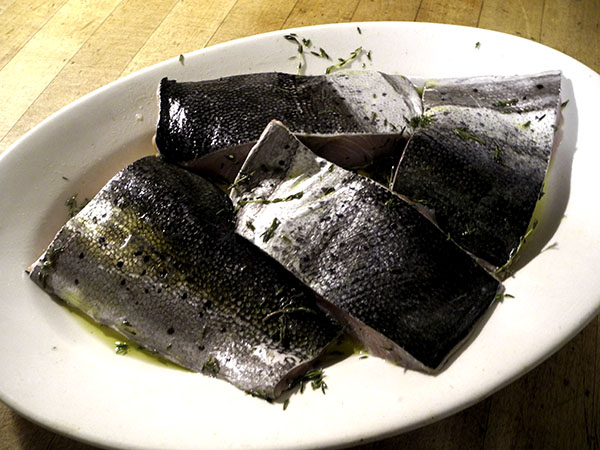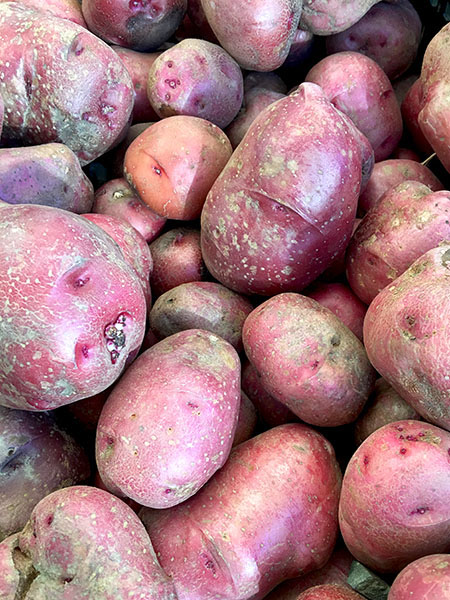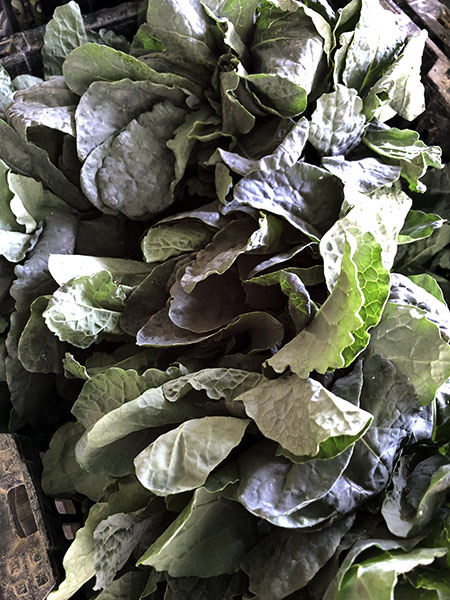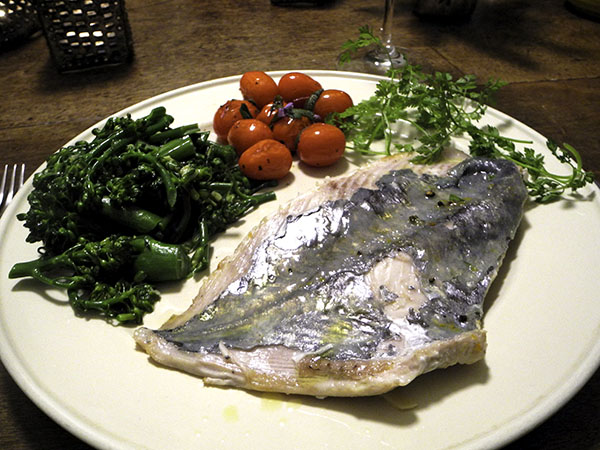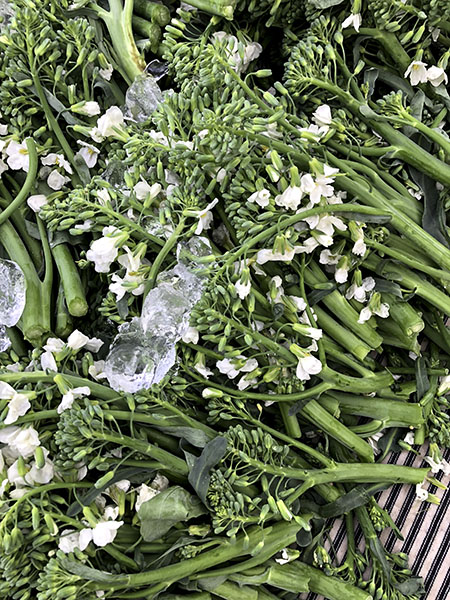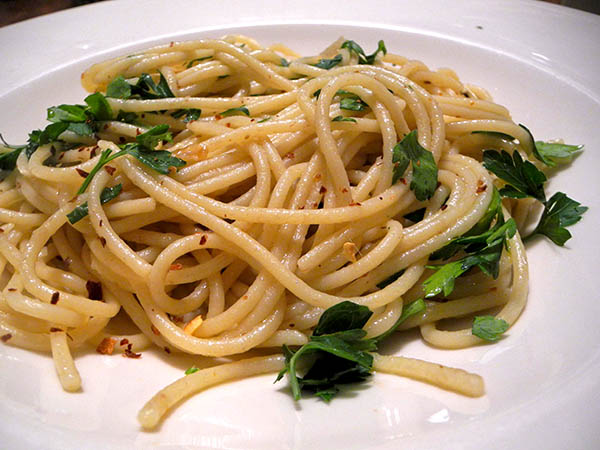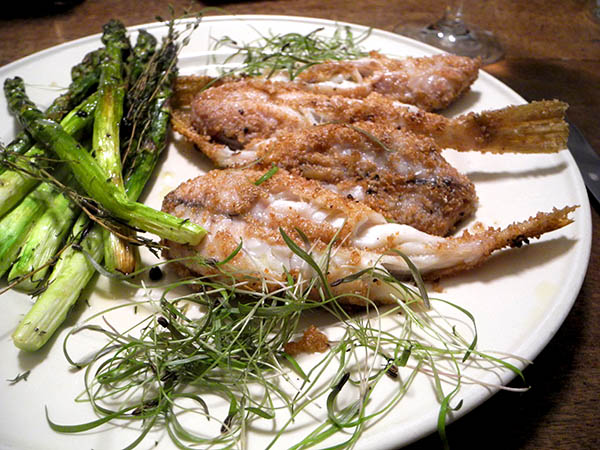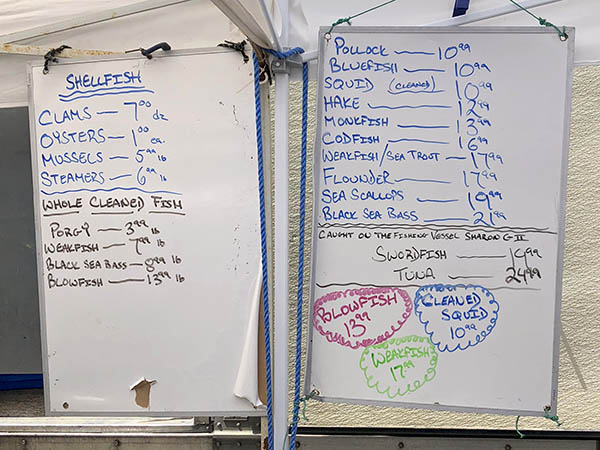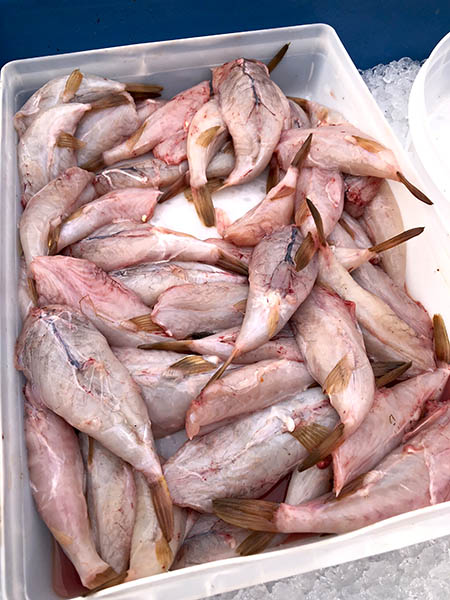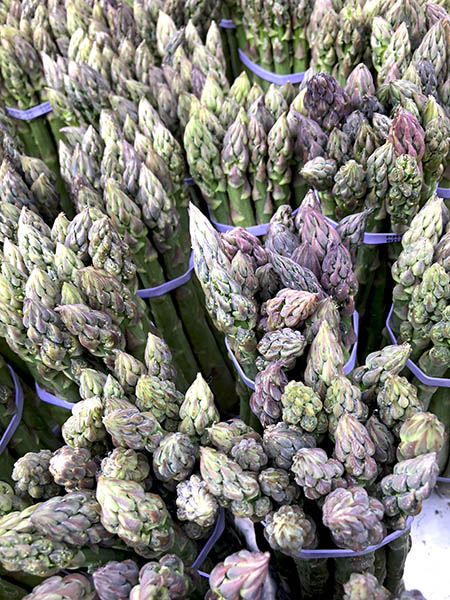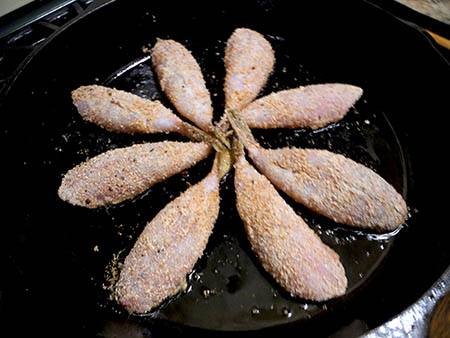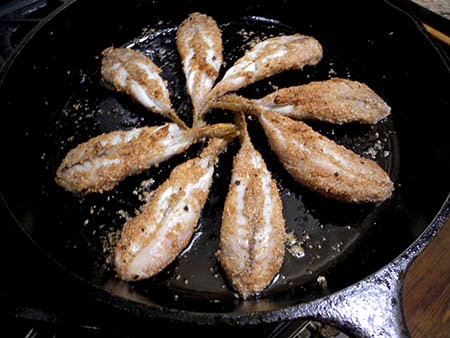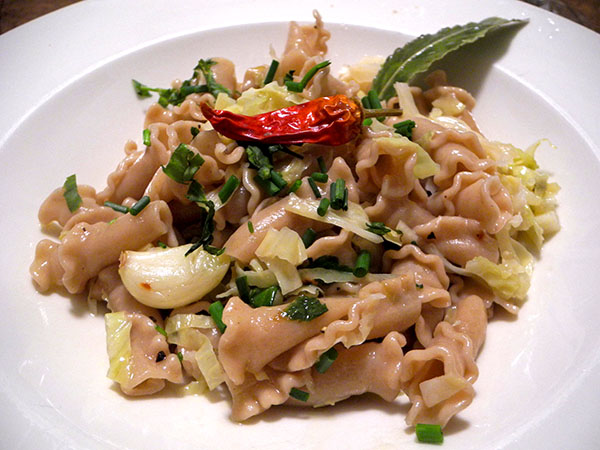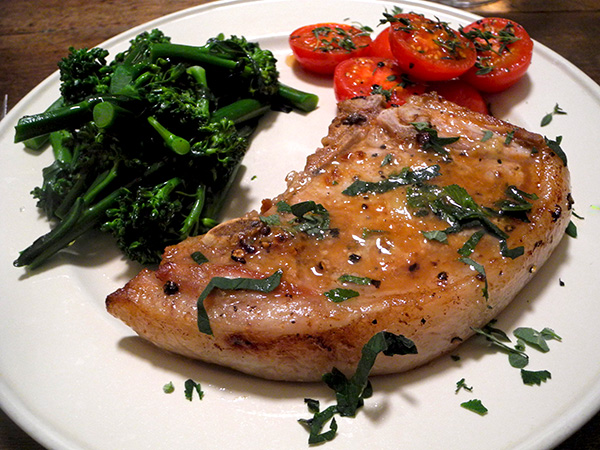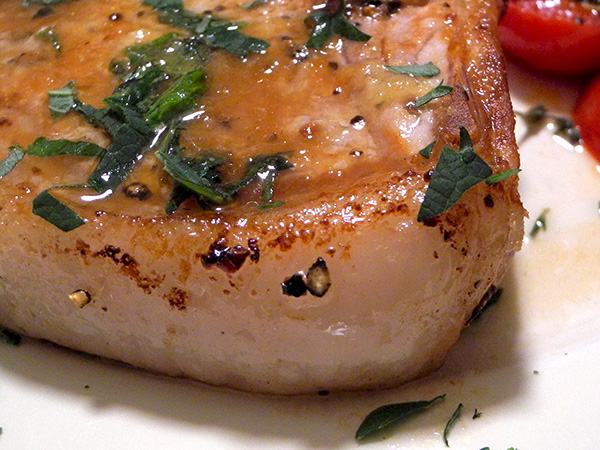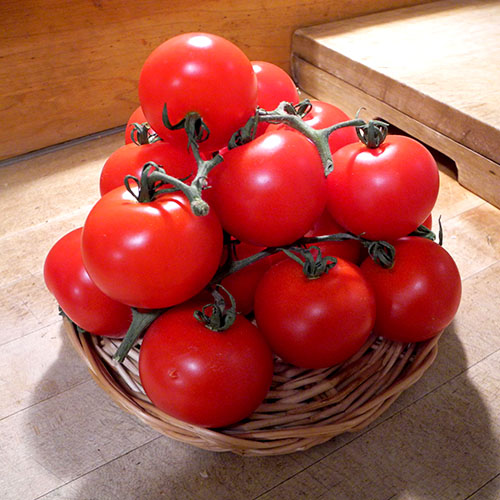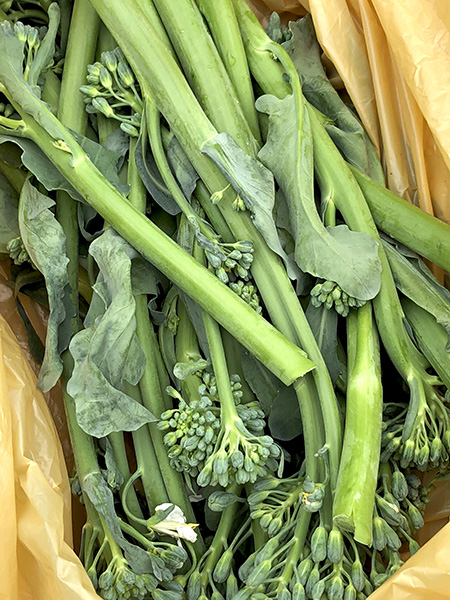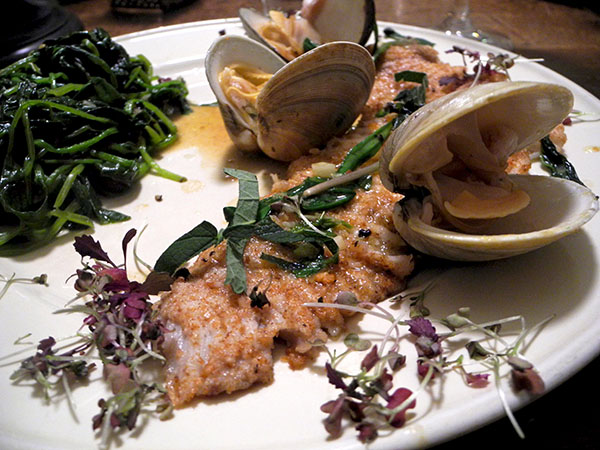
We had finally gotten our schedules together and we were going to sit down to dinner with a friend we had invited months ago. We expected a lively conversation, so in what turned out to be an excess of precaution, we told him we would either dine at a restaurant or at home. I never really had much doubt it would be the latter, mostly because, especially in the last year or two, I’ve become more confident about cooking generally, and even when it comes to including guests, and less easily stressed about focusing on cooking while also trying to be a part of the conversation.
And then only the day before I finally admitted to myself that I really did prefer cooking and dining at home to almost any restaurant experience, when it was about sharing a meal with friends old or new (and possibly also when it’s only the two of us, but of course this applies only in New York).
As it was, last night I presented a meal slightly more creative than most of those that we enjoy with guests, since normally the risk of a cooking failure or of my being distracted from good conversation keeps me from trying to be too innovative.
I picked up some skate wings at the Greenmarket that morning, but even before I left the fishers’ stand I was having my doubts about the quantity I had asked for: More than the 6 that I bought would never fit into the pan I had in mind, but a second one would mean my range top would be monopolized by the fish alone. While I could add that pan, it would complicate everything, including the vegetable I had not yet decided on, and it seemed to me that asking for 3 more skate (giving each of us a serving of 3) seemed indecorous.
I decided I’d make up any deficiency in the quantity of 6 by serving a second vegetable, but then I over heard Jan and Karl talking to each other about having only 9 clams left. My ears perked up: Nine clams would mean a just right 3 for each of us as a raw shellfish appetizer (more would have been even better but I was the one who would have to open them that night, in addition to my other cooking duties. I bought the clams sight unseen; they were large littlenecks as it turned out.
I then went looking for some particularly sweet greens, which is what Barry had answered was his preference when I texted him asking what he would like to go with skate that night. He was remembering the collards we had on Saturday, but lately we’ve been enjoying so many terrific sweet things Brassicaceae. I decided on some beautiful overwintered spinach, mostly because one of the people at one of my favorite vegetable stands was so certain that should be my best choice for sweetness. He was right about the sweetness, and there was a bonus was the tender stems that made the cooked greens look a bit like noodles.
Once I was home it occurred to me for the first time that I might not have to pry open the clams the hard way if I could come up with an exciting approach that would combine them with the skate; at the same time I wouldn’t have to worry about the post-clam downtime Barry and Jesse would have to endure while I prepared the next course. I did a search on line and I came up with this recipe. Although in the end I deviated from it quite a bit, I want to credit chef Ana Grgić for what turned out to be a wonderful entrée.
Yay dinner! And yay friends!
- six small, yet fairly ‘thickset’ (if that can be said of rays) skate wings, weighing just over 16 ounces altogether, from P.E. & D.D. Seafood, coated all over with a local whole wheat flour from the Blew family of Oak Grove Mills Mills, purchased in the Union Square Greenmarket, that had been seasoned with sea salt and freshly-ground black pepper, sautéed in olive oil and a bit of butter, for a couple of minutes or so on each side, inside a heavy rectangular enameled cast iron oven pan, the fish removed to 3 plates and kept warm in a very ‘slow oven’ while a little more than a tablespoons of butter was added to the pan, and 9 good size littleneck clams, also from P.E. & D.D. Seafood, added to the pan, covered loosely with tin foil and cooked until they had opened [these were pretty big, and they didn’t open very widely for me, so I gave them a little help with a knife and they ended up finished very nicely al dente (if that can be said about clams), and so absolutely fresh and delicious], the flame then turned off under the pan and, with the clams still there, allowed to call jsut a bit before a couple tablespoons of butter were added and pushed around with a wooden spatula until melted, then the finely-chopped bulb sections of 5 small ramps from Lucky Dog Organic Farm, the zest from half of an organic Whole Foods Market lemon, along with a small amount of juice from the lemon, were all stirred around in the pan before the thinly-sliced green leaves of the ramps were tossed in and mixed with the warm sauce, which was checked for seasoning and poured over the warm skate, with the clams arranged around and on top, a bit of chopped Salvia Mandarino (Eng. ‘mandarin sage’, or ‘pineapple sage’) from Stokes Farm sprinkled on the fish, which was garnished with red micro mustard from Two Guys from Woodbridge

- a generous amount of overwintered spinach from Lani’s Farm, washed in several changes of water, drained, wilted inside a large enameled cast iron pot in a little olive oil in which 2 cut up stems of spring garlic from John D. Madura Farm had first been allowed to soften, the spinach seasoned with sea salt, freshly-ground black pepper, finished on the plates drizzled with a bit more of the olive oil
- there were 2 wines, because, well, we were at the table for hours: the first was a Portuguese (Alentejano) white, Esporão V Verdelho 2016, from Garnet Wines, and the second was also Portuguese (Lisbon), Dory Branco 2016, from Garnet Wines
There was a sweet.
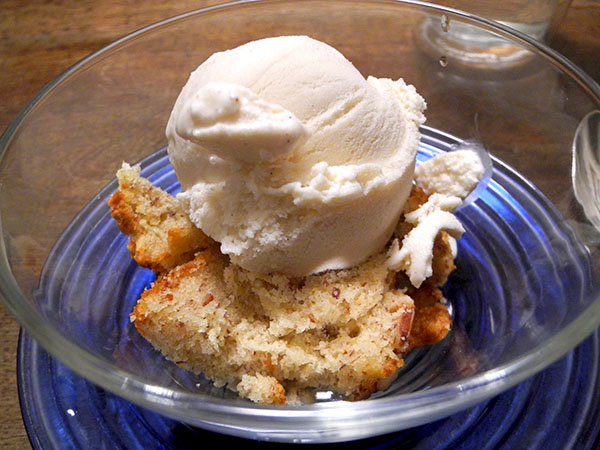
- ‘slices’ of an almond cardamon pound cake from Bread Alone, in the Unions Square Greenmarket, served with a scoop of Talenti (New Jersey) Vanilla Bean Gelato from Whole Foods Market
